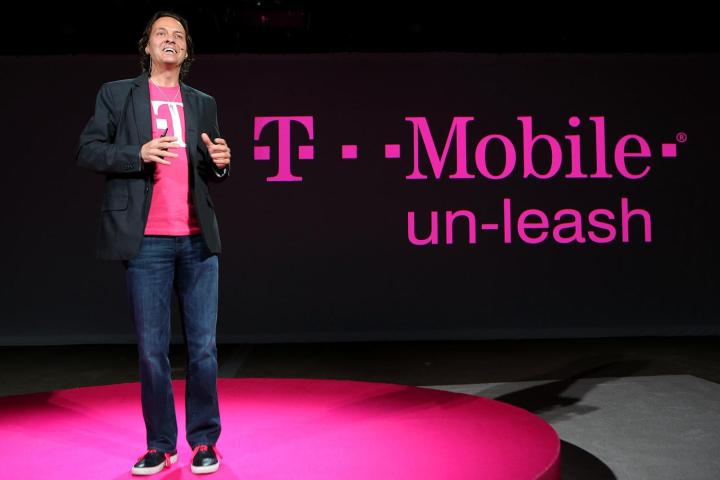
T-Mobile‘s long had certain data-shaping measures in place for “heavy usage” users, but it was never clear exactly when those data slow-down measures kicked in. Old language on T-Mobile‘s Internet Services webpage pegged it around the top three percent of users. However, T-Mobile‘s now updated the fine print of its unlimited 4G LTE Simple Choice plan with a firmer threshold of 21GB.
“Very heavy usage by even a few customers at times and places of competing network demands can affect the network performance for all customers.”
“Unlimited 4G LTE customers who use more than 21 GB of data in a bill cycle will have their data de-prioritized compared to other customers for that bill cycle at locations and times when competing network demands occur, resulting in relatively slower speed,” the new section reads.
What does “relatively slower speed” mean in real-world terms, exactly? That depends. At cell sites where bandwidth isn’t a premium, the lower speeds won’t be as noticeable, but at peaks times and in crowded areas, you’re likely to see “significant reductions” in data speeds, T-Mobile says.
As T-Mobile explains it, “data de-prioritization”– which isn’t the same as the sort of indiscriminate throttling that the industry’s practiced in the past, the company claims — is a necessary feature of a well-functioning network. “[Very] heavy usage by even a few customers at times and places of competing network demands can affect the network performance for all customers,” T-Mobile‘s policy reads.
If that argument sounds familiar, that’s because it is. Verizon used “network optimization” as justification for its planned throttling of 4G LTE subscribers. Sprint, before it discontinued its throttling policy, couched it in terms of “fairness” to other subscribers in congested areas.
Throttling customers with grandfathered unlimited plans has been AT&T’s MO since 2011. Sprint, until very recently, slowed down the speeds of the “top five percent” of subscribers in “congested areas.” Verizon late last year entertained the idea of imposing a “congestion mitigation” scheme on users with unlimited data. Perhaps it shouldn’t come as a surprise, then, that T-Mobile‘s guilty of the same.
FCC Chairman Tom Wheeler has been particularly aggressive in pursuing what he perceives as arbitrary restrictions intended to push subscribers to pricer plans. Pressure from Wheeler derailed Verizon’s 4G LTE throttling plans, and the FCC with the Federal Trade Commission (FTC) leveraged a $100 million fine on AT&T this year for falsely labeling its throttled plans “unlimited” and falling short of the FCC’s requirements of transparency.
T-Mobile‘s been careful not to run afoul of the FCC’s rules. Of course, adhering to regulations isn’t exactly the same as keeping existing and potential customers happy. Throttling isn’t exactly befitting of the “uncarrier” image T-Mobile‘s worked so hard to cultivate, but the carrier must reveal its rules, or face the wrath of regulators.
Editors' Recommendations
- The 5G speed race is over and T-Mobile has won
- Your T-Mobile plan now has bigger gas discounts and international 5G
- T-Mobile’s new Magenta Max plan offers truly unlimited 5G data, 40GB of hot spot


